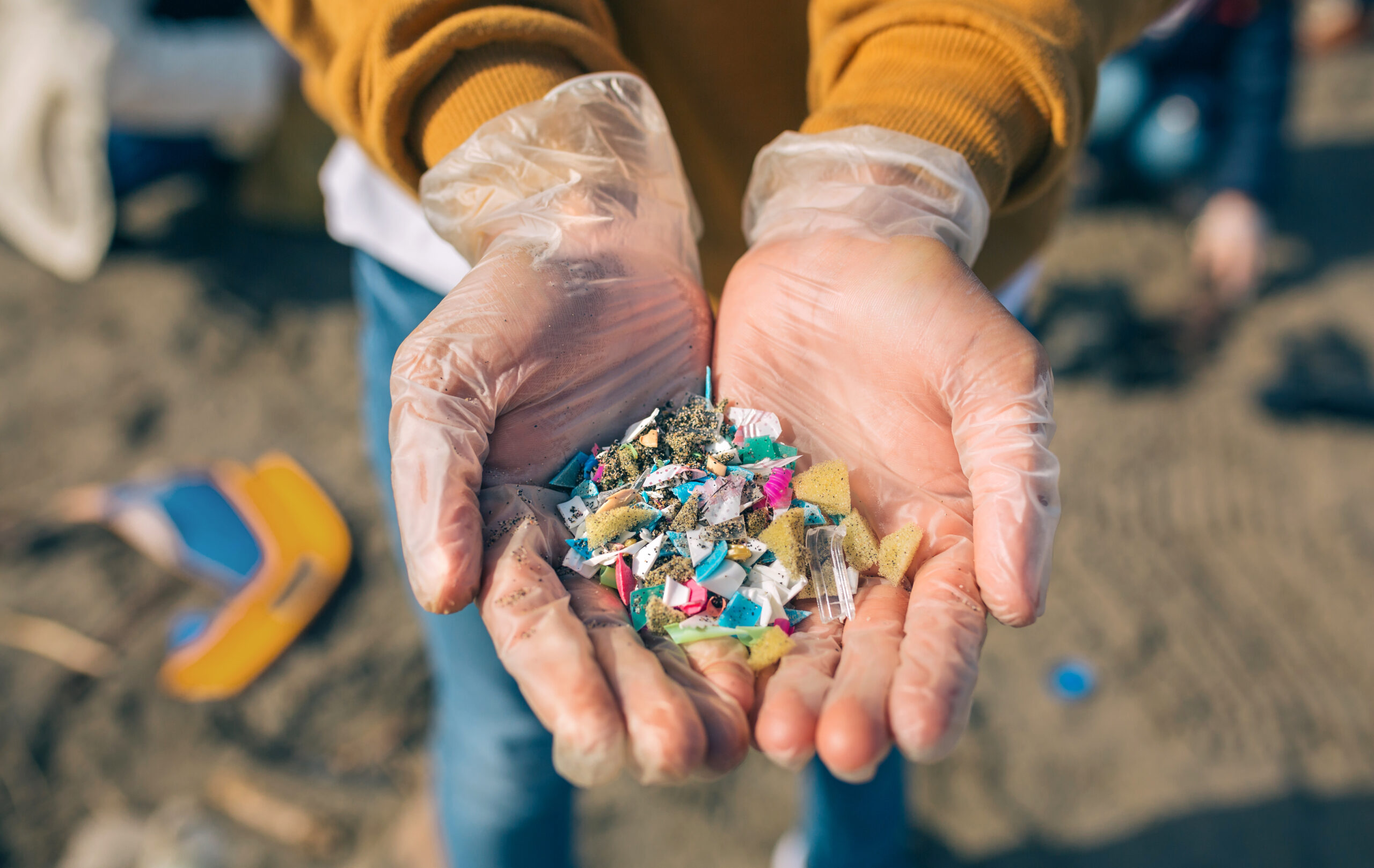The answer: the average human eats about 5 grams of microplastics a week, which is the equivalent of a credit card. Microplastics are pieces of plastic with a diameter of 5 millimeters or less that significantly harm the environment. They come from the degradation of larger plastics dumped into the ocean or many other sources such as polyester or paint. Microplastics are so small that they are unable to be filtered out before going straight into the ocean.
After marine life accidentally eat them, they either starve from this innutritious ingestion that clogs their stomachs or accumulate higher up the food chain. The toxins leaked into the marine predators that eat contaminated organisms get magnified as trophic levels increase through the process of biomagnification. As these particles cannot biodegrade and incorporate into organic tissue, humans suffer health consequences that are still being discovered after consuming contaminated seafood. Aside from directly eating seafood, humans also consume microplastics through bottled water and dust. Bottled water, on average, has twice as much microplastic contamination as tap water. There are also so many microplastics in household dust such that about 114 particles settle on a plate in just 20 minutes. Imagine taking a small bite out of your credit card with every meal.
Plastic pollution in the ocean is at a dangerously high level.
Image Source: FabioFilzi
Many of the harms of microplastics are not yet known and need further study, but it is already clear that they have the potential to be hugely damaging to human health. In a lab at Florida State University, lung cells exposed to microplastics had decreased metabolism and growth, altered shapes, and formed unnatural gaps between cells that were normally connected to one another.
What can we do to protect ourselves from the negative effects of microplastics? As they are already in the ocean and air, it is impossible to avoid them entirely. The best thing we can do is reduce plastic consumption and waste and take other small actions every day. For example, the fast fashion industry produces an enormous amount of microplastic waste by using cheap plastic based cloth materials. Shopping sustainably from thrift stores and small businesses can make a difference. We can also use reusable bags, water bottles, and biodegradable materials. Recycling properly, picking up trash at beaches or on the street, and not buying items with microbeads, such as exfoliators and scrubs, can also help. Furthermore, eating a more vegan diet reduces the amount of toxins you consume as you would be eating only primary producers (plants) that don’t go through biomagnification.
Environmental health and human health are undeniably linked, so the more damage we cause to the environment the more we are hurting ourselves as well. It requires a collective effort to change the course of climate change and pollution, and every person’s effort matters.
Featured Image: © David Pereiras/Adobe Stock










